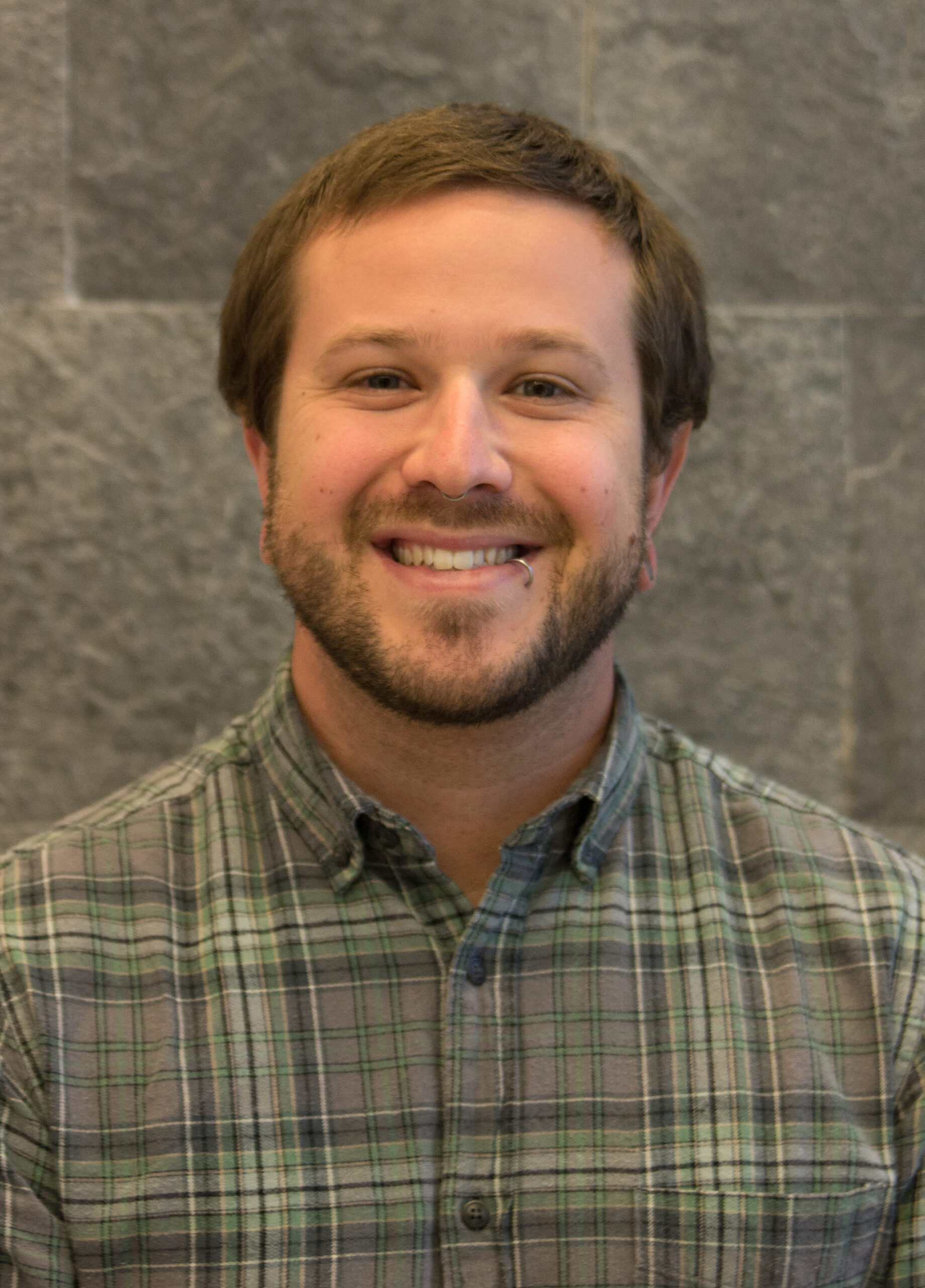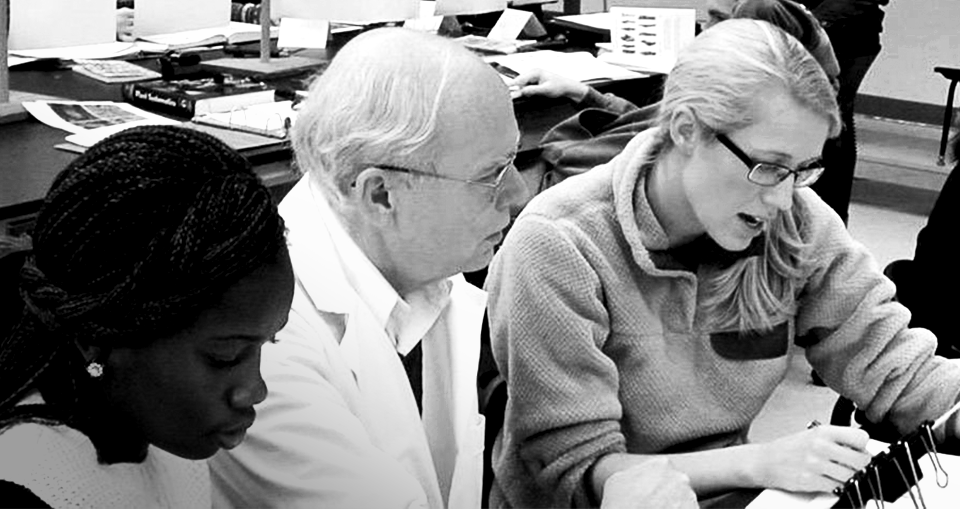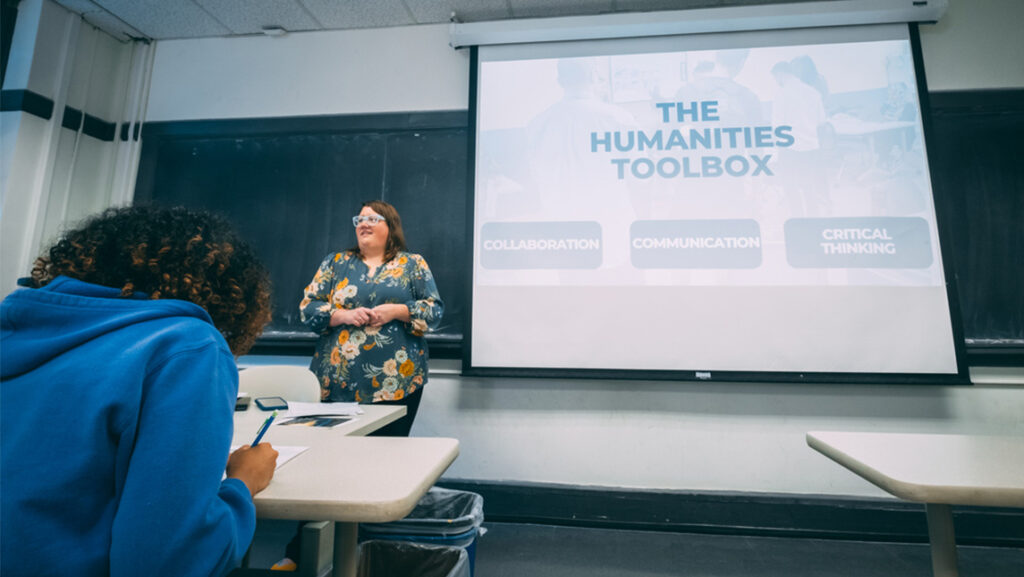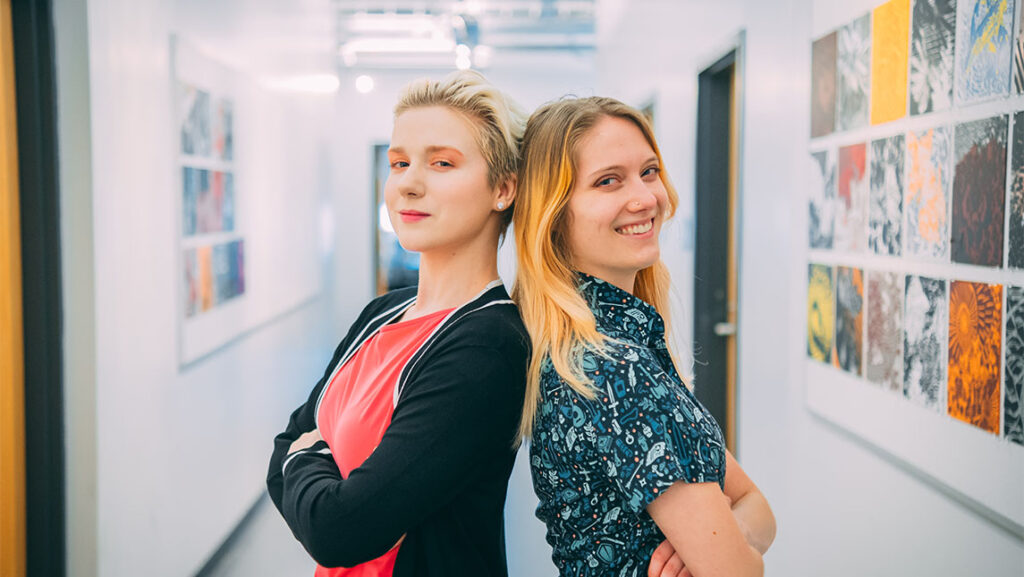UNCG biology professor and botanist Bruce Kirchoff has spent nearly four decades identifying plants in the field and teaching his students to do the same. In the process, he has developed some revolutionary ideas about visual learning.
The researcher and teacher has noticed patterns in how his high-achieving students study challenging material. The students who excel in his courses use active rather than passive visual learning methods. They do not just receive and regurgitate information – they analyze, synthesize, and evaluate what they are given. With cognitive psychology research backing his observations, Kirchoff has translated these successful approaches into a computer program. The result is an incredibly effective tool for students to quickly learn visual concepts.
Visual expertise is essential to many disciplines. “When a good field biologist makes an identification, be it of a plant, bird, or mammal, they can do it at a glance, without the use of any kind of supplemental aids. That kind of visual expertise is what we’ve learned to teach, quickly and efficiently,” Kirchoff explains.
The program speeds up the process of becoming a visual expert, something that takes years in the field, by using repetition, variation, and active study methods. Users see a large variety of images and receive immediate feedback during assessments. If they get an answer wrong, they have the option of redoing the question until they get it right. “What we do with the software is show students variation through multiple images so they can get the concept of the species or idea that we are trying to teach,” says Kirchoff. “It’s not memorization, it’s really conceptual learning.”
“It looks very simple,” he acknowledges. “But it’s very effective.” Kirchoff reached out to colleagues across multiple disciplines, from education to art, to prove this efficacy.
UNCG Psychology’s Dr. Peter Delaney, who specializes in cognition, learning, and memory, collaborated with Kirchoff to put years of research and development to the test in a plant systematics class. The controlled experiment tested students on two sets of plants. Students studied the first set using their own traditional methods and studied the second set using the visual learning program. Students who learned a plant group using the software performed up to 25% better on the final exam. Those findings will soon appear in Kirchoff and Delaney’s publication, “Optimizing Learning of Scientific Category Knowledge in the Classroom: The Case of Plant Identification.” A graduate student has also discovered evidence of improved long-term retention. Six months after the class, students better remembered the plant set they learned with the Kirchoff software.
In a bid to more effectively share these exciting findings, Dr. Kirchoff and his wife Mary have started the company Metis, LLC. Their mission to “Revolutionize Learning” is quickly becoming a reality as they mobilize their product for people in all areas of visual expertise, from bird watchers to chemists to mathematicians.
In January, the company was one of 40 worldwide semifinalists in the Elance Big Idea Start-Up competition – an endorsement for its potential in both academic and commercial fields. “I had never done this before or even seen a pitch before, so it was a new experience,” shared the professor. “But it went really well.” Since then, Metis has been a finalist at the Charlotte Venture Challenge and PTP Next competitions. This year Kirchoff also received the 2014 UNC Board of Governors Award for Excellence in Teaching and the 2014 Charles Edwin Bessey Teaching Award from the Botanical Society of America.
Kirchoff’s first foray into the commercial market? Bird watchers. “There are a lot of people out there who are interested in improving their skills in bird identification. With a focus group of birding enthusiasts from the Piedmont Bird Club here in Greensboro, we have pilot tested a prototype of the software. We got excellent feedback, which we are incorporating into the next version, an app for mobile devices.”
“We are excited to take these techniques and apply them to different areas where visual learning is important,” says Kirchoff. “We are looking to revolutionize learning.”
 Article author Mary McLean is a Media and Communication Intern with the UNCG Office of Research and Economic Development. She researches and writes articles about the on and off campus impacts of UNCG research. Mary is a junior at UNCG, majoring in English and minoring in Media Studies. Her interest in journalism and communication led her to her current position.
Article author Mary McLean is a Media and Communication Intern with the UNCG Office of Research and Economic Development. She researches and writes articles about the on and off campus impacts of UNCG research. Mary is a junior at UNCG, majoring in English and minoring in Media Studies. Her interest in journalism and communication led her to her current position.



